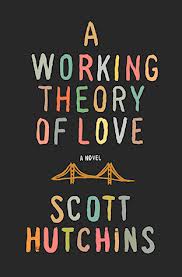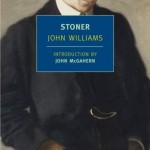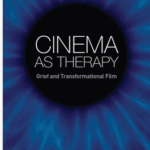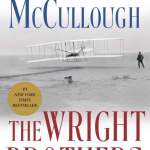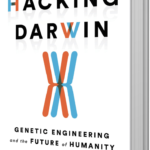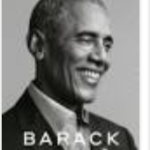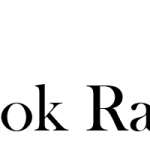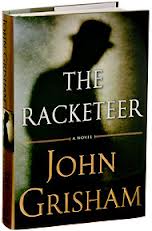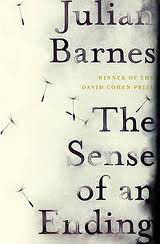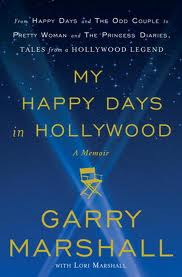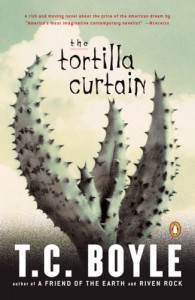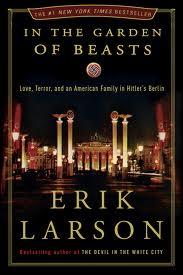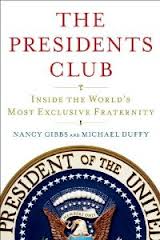
The President’s Club- by Nancy Gibbs and Michael Duffy
After a United States President leaves office he is invited into a secret club of former U.S. presidents where he is inducted into the group in an elaborate ceremony where allegiance to the current President is sworn with a special blood oath…Nope, actually there is no such thing. This is just my fantasy. However the actual relationships of former US Presidents to each other and to the person in office is one of most fascinating stories that any political junkie could ever read. The documentation at the end of the book confirms that it is meticulously researched and based on the reports of the people who were there including quite frequently the words of the Presidents themselves in their memoirs and other papers. Even when there were different recollections of interactions, both point of views were presented, making the study of the relationship even more interesting .
The authors are two seasoned political reporters, Nancy Gibbs and Michael Duffy both editors at Time Magazine frequently describe these often very personal interactions of these larger than life people as it were an official organization. They have chosen to describe the “club activities” starting when Herbert Hoover left office. Hoover had received a humiliating defeat by FDR who had little use for Hoover after he took office. However when Harry Truman was faced with the problems of post WWII Europe, where there were millions of starving people and the US was sensing great competition with the Soviet Union, he felt he desperately needed help. He turned to Hoover who had great experience after WWI in organizing food distribution to a starving Europe. Hoover who had felt marginalized since he left office was nearly brought to tears when Truman brought him to the While house and asked for his help.
When a President has served the maximum two terms and a person of the opposing party wins the White House, it still means that the old President has to welcome the new guy into the White House usually following a bitter campaign. When the new guy has defeated the old guy, that can even be more difficult. All these variations were described in much detail as they took place.
When Truman stepped down, he had to welcome a Republican, whom he had campaigned against, into his new home. Of course Eisenhower, (Ike) was one of the most popular people in America. In fact, before Ike identified himself as a Republican, Truman was hoping he would run as a Democrat. Harry even played with idea of running as his Vice- President. They subsequently didn’t get along so great all the time. These are some of the fascinating tidbits that emerge from each chapter of this book.
Although JFK died two years into his presidency, he of course interacted with a future president, Richard Nixon who was his bitter opponent in the 1960 election. Their personal feelings about each other are also reviewed in this book . Despite being of opposite parties, when JFK had to deal with a proposed invasion of Cuba and then the failure of this invasion, who did he turn to as an adviser? It was Eisenhower (not that he always listened to him).
Obviously when sitting Presidents phone ex- Presidents and ask for advice, it often is not for pubic consumption. When Lyndon Johnson found himself suddenly the President of the US after the assassination of JFK he called the club members for advice, Hoover, Truman and Ike. So many behind the scene stories emerge which concern interactions as well as battles between Presidents, former presidents and even future presidents. While Johnson was finishing his one and only elected term as President, peace talks were off and on in Viet Nam. Nixon was running against Humphrey and if peace looked good, it would be helpful for Humphrey and the Democrats. Whereas if peace talks seem to be failing or were delayed it would be good for Nixon. It turns out that Nixon actually was doing a lot of behind the scenes shenanigans to cause the peace talks to be held up, much to Johnson and the Democrat’s disadvantage. This book tells it all.
Johnson when he left office was quite hurt that he hadn’t ended the war and that of course was the reason he decided not to seek a second term. Despite some of his personal negative feeling for the actions of Nixon, they had a great deal of respect for each other and it was quite meaningful when Nixon called upon LBJ for advice and some help. There was no doubt that when Nixon left office he was disgraced and humiliated after the Watergate scandal caused him to resign. His relationship with his successor Gerald Ford and Ford’s decision to offer Nixon a Presidential Pardon provides interesting insights into the thinking that goes into presidential decisions and how they are often made, despite the opinions of their advisers.
Nixon, once out of office spent the next 25 years attempting to rehabilitate his image. Which of the subsequent Presidents would you imagine treated him with the most respect and listened to his advice? It wasn’t Ford, Carter or senior Bush. It was Bill Clinton who early on took the advice of Nixon how to support Boris Yelsin in Russia and frequently discussed with him everything from foreign policy to the how he raised his daughter in the White House. This book supplies so many inside details about these relationships culled from numerous memoirs of the actual participants and their aides.
Reagan didn’t seem to utilize former Presidents as much as others did. However when Reagan went to visit a newly elected President Clinton he did offer an important piece of advice. He taught Clinton how to salute so he could respond properly to military salutes.. Also when Reagan had completed his second term and his protégé Vice President George H. Bush was running for President, he asked the advice of Richard Nixon how he could help his VP in the race against the Democrat Dukakis. Nixon of course had served as VP to Eisenhower and experienced how Ike hadn’t helped him enough in his run against JFK in 1960. Nixon gave Reagan detailed advice of what he should do and the he predicted that Bush will ask Reagan to campaign in California in the last two weeks of the election and that would make the difference. That is exactly what happened and Bush nosed out his opponent with the last minute undecided votes from California going to him to make the difference. Many observers believe that it was based on Reagan’s finest speech in the closing moments of that campaign.
Carter was always a renegade of the club. When Clinton would call upon him to carry out a mission in North Korea, he would do a great job but then “go rogue” and call a press conference that would steam the current President. In the end, everyone of the Presidents felt a great respect for the Presidency and the person holding the office. They all shared a unique experience and the felt great empathy for the person in the job.
There were many surprising moments described in this book about the relationships between the Presidents. Perhaps the two most touching stories were between Father and son – George W President and his father. When George H visited his son George W in the oval office of the White House for the first time as President, they were both speechless and cried.. Later on when the younger Bush sent a message to his father to tell him that he had committed the US to war, the elder Bush wrote him a personal note quoting the words of his daughter, the younger Bushes sister who died of leukemia as a child ,“ I love you more than tongue can tell.”
Finally, there is the ongoing relationship that exists to day between the 2 Bushes and their formerly arch-enemy Bill Clinton. The elder Bush and Bill are particularly close and have worked together at Obama’s request to raise money and distribute it as well as food and supplies for several world wide humanitarian projects. The three Bushes call each other by their presidential number. So when hanging out at a “Club” gathering perhaps at the Bush ranch in Texas, “43” would say “41 put some hot dogs on the fire, #42 is hungry.” That is how it really goes at the President’s Club. (2012)
